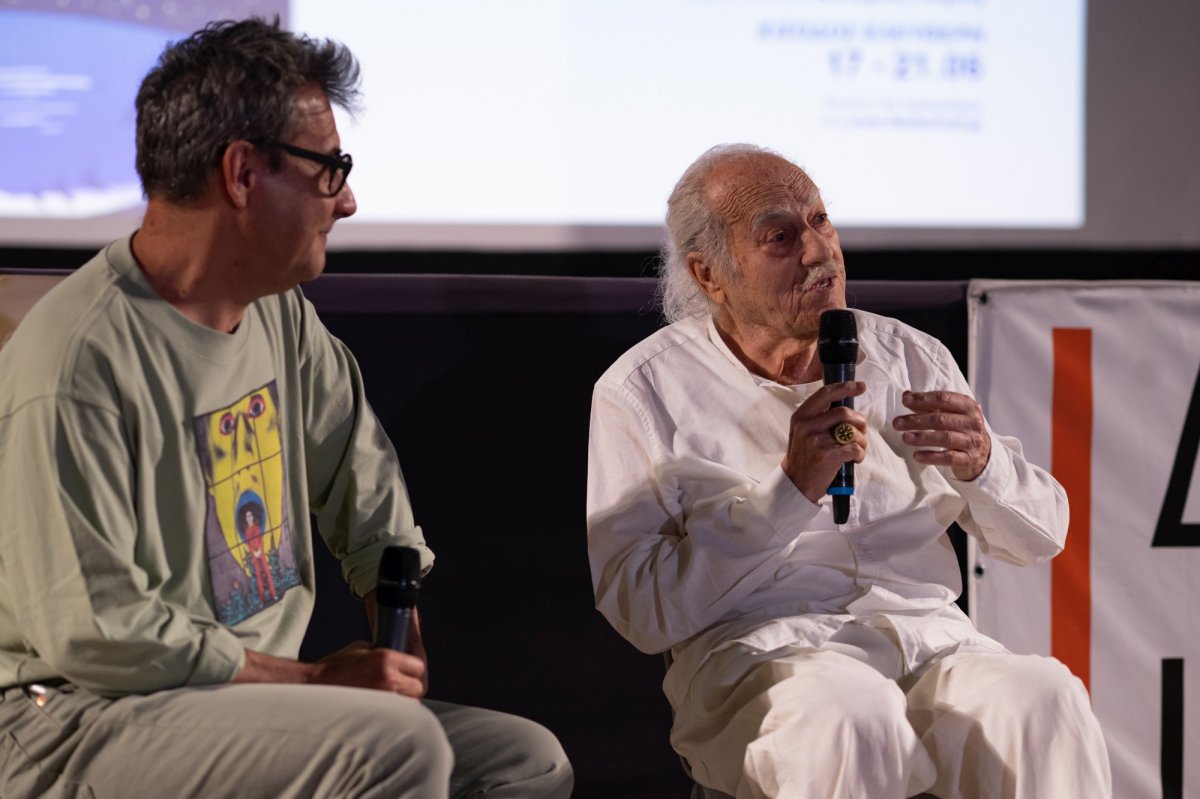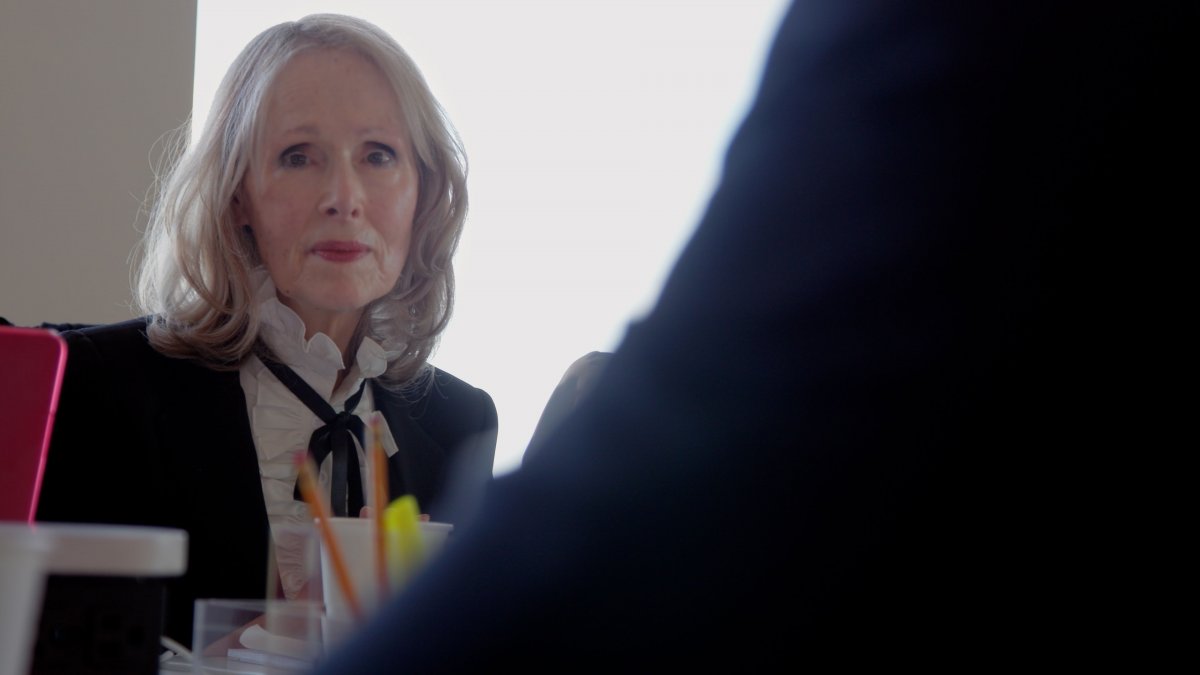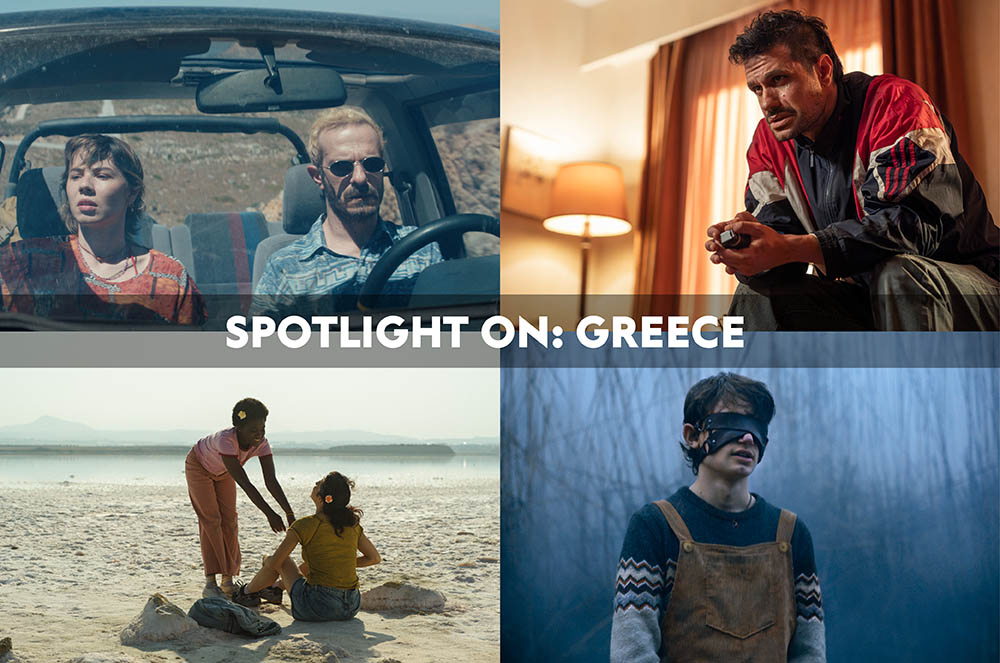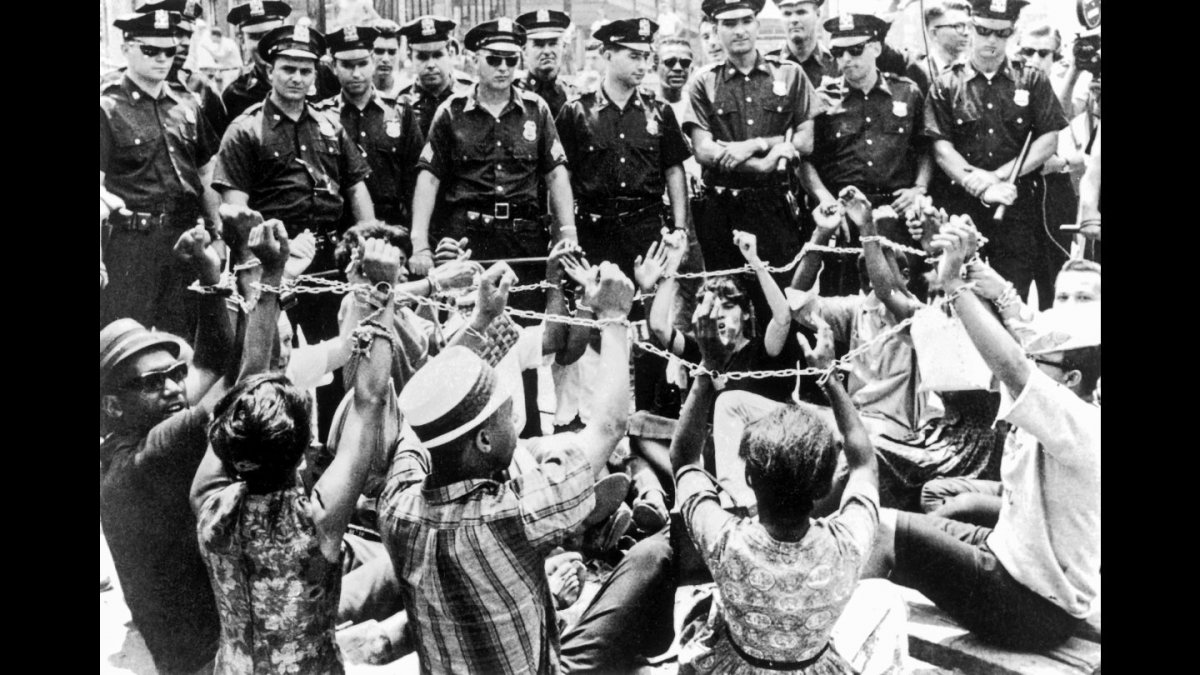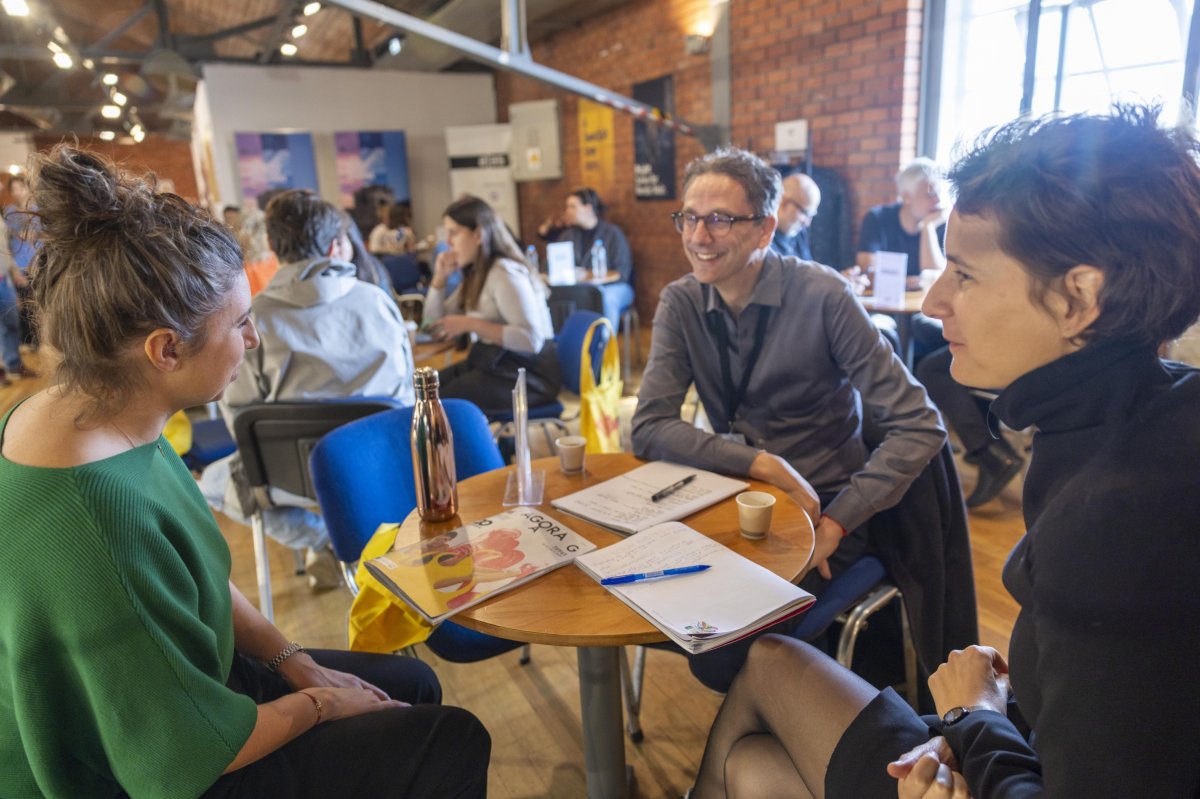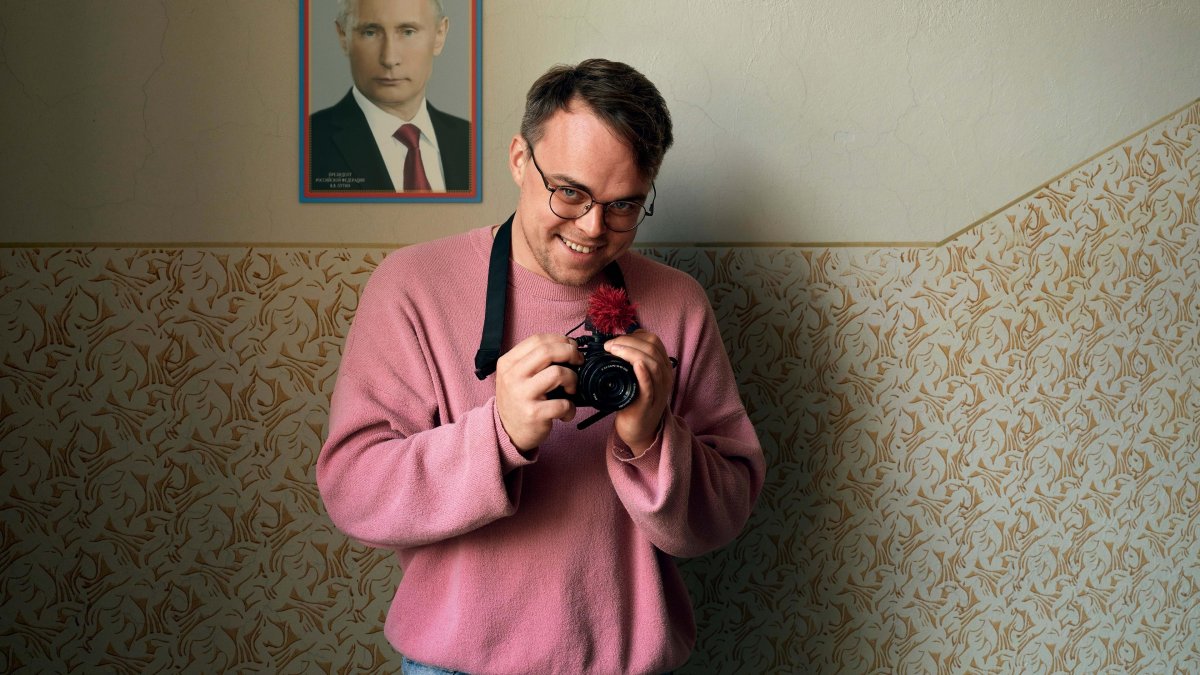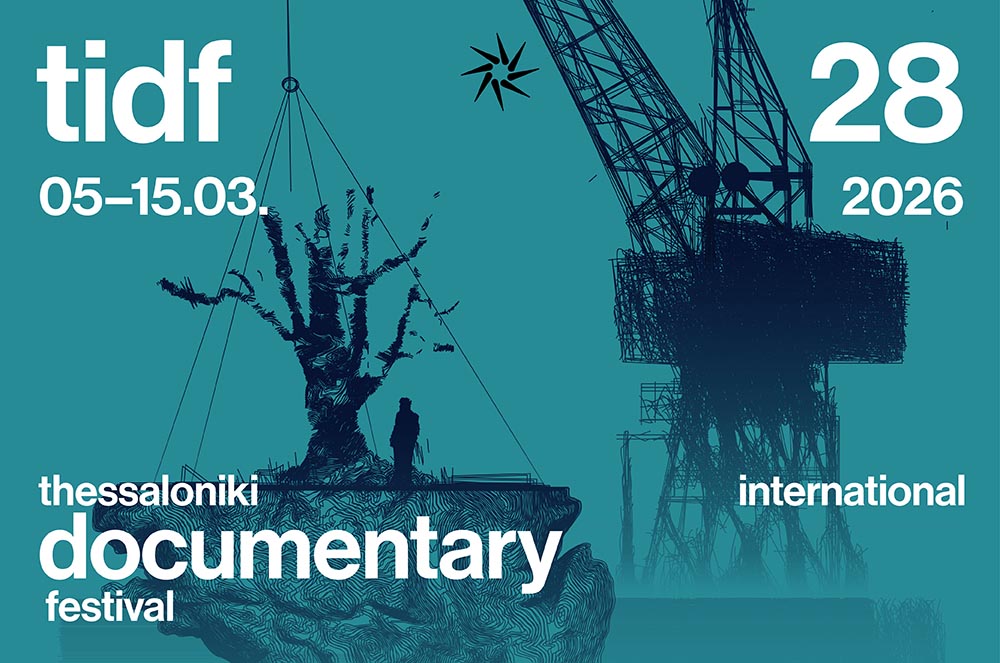The 4th Evia Film Project, Thessaloniki Film Festival’s green initiative, continued on Wednesday, June 18th, with screenings, workshops for both children and film industry professionals, as well as with the unveiling of the Agora projects. The legendary cinematographer Nikos Kavoukidis, who has completed 70 years of uninterrupted presence in Greek cinema, attended the screening of the film Jenny Jenny, and spoke with the Festival’s Artistic Director, Orestis Andreadakis. Esteemed actors and actresses honored Nikos Kavoukidis with their presence, including Spyros Papadopoulos, Ieroklis Michailidis, Kostas Apostolakis, Michalis Sarantis, Fanis Mouratidis, Konstadinos Aspiotis, Alexandra Aidini, and Argiris Pavlidis.
Before the film’s screening, Orestis Andreadaki praised Nikos Kavoukidis’s work: “All the films in this year’s program offer food for thought, a way to reflect on the Greek summer. Jenny Jenny is a film by Dinos Dimopoulos, filmed in 1965 on the island of Spetses. Alongside us is the man behind the camera, the film’s cinematographer, Nikos Kavoukidis, who became involved in cinema at just fifteen years-old. He worked with all of the great film directors of that period, including Alekos Sakellarios, Dinos Dimopoulos, Giannis Dalianidis, and many more, on iconic films we have all loved, beyond the one we are about to watch now, such as Koinonia, ora miden, Stefania, O Astrapogiannos, Mia trelli trelli oikogeneia, Lola etc. He is also one of the few cinematographers who were also part of the New Greek Cinema, having collaborated with all of the film directors that defined this revolutionary movement in Greek cinema: Pantelis Voulgaris, Nikos Panayotopoulos, Michael Cacoyannis, Roviros Manthoulis, and of course, Nikos Koundouros. He worked on emblematic and significant films such as The Matchmaking of Anna, The colors of iris, 1922, Bordello, and Byron: Ballad for a Daemon by Nikos Koundouros. They call him a legend of Greek cinema, the Nestor of cinematography, and a master of light. He himself simply prefers to be called a teacher,” he stated and welcomed Nikos Kavoukidis to the stage.
Nikos Kavoukidis thanked the audience for their warm applause, Orestis Andreadakis, the Festival’s Head of the Greek Program, Eleni Androutsopoulou, as well as the entire Festival team for their efforts in all of the activities aimed at supporting Greek film professionals. “Evia Film Project holds great significance as it supports culture, an act much needed in Evia after the fires. I am deeply moved because the Festival is honoring me with the screening of this film, and I see that the people of Evia have embraced this initiative, which I hope continues for many years to come,” Nikos Kavoukidis stated. This year marks his 70th year of contribution to Greek cinema. When asked by Orestis Andreadakis about the Greek light, and the notion that directors avoid it because it is difficult to capture, Nikos Kavoukidis commented: “The requirements are different, depending on whether the film is black and white or in color. Greek light is harsh, and especially in color film it requires attention and precision. However, all Greek cinematographers have managed to capture the Greek light and produce beautiful works, for example, Giorgos Arvanitis, Yorgos Frentzos, and many others.”
Next, touching upon his collaboration with Tzeni Karezi, he remarked: “Tzeni loved spearguns and ouzo, and she was also an incredible backgammon player! We had developed a very good relationship. I left Finos Film before the film Kontserto gia polyvola, and when she found out I wouldn’t be involved, she protested vehemently, saying ‘Without dear little Kavoukidis, I’m not making the film!’” At this point, and in response to a question posed by Orestis Andreadakis about his collaboration with iconic female figures of Greek cinema, Nikos Kavoukidis mentioned: “All cinematographers are keen to present the leading lady beautifully. In To doloma, starring Aliki Vougiouklaki, I remember we were filming at Finos Film with these large cameras that had glass in front of the lens. Aliki used them as a mirror, and if something wasn’t to her liking, she would stop the filming. But I wanted to film her differently, cast a different light on her than usual. Ultimately, when she saw the outcome in a test screening, she went nuts and started hugging and kissing me! I told her to stop with the kissing and let me photograph her the way I wanted, and that's how it was done.”
Then, on the subject of the New Greek Cinema movement, Nikos Kanoukidis said: “With this new movement, we left the sets of Finos Film and moved on, to films such as Robbery in Athens, or Voulgaris’s first film, The Matchmaking of Anna, or Panayotopoulos’s debut The colors of iris. We, Greeks, often resort to gimmicks. As we didn’t have a lot of money for film productions, we did what we could, and we made it work.” In closing, Nikos Kavoukidis recounted a story from the filming of The colors of iris, about a scene shot on a beach in Evia: “In a scene, Kostas Sfikas had to plunge into the water while holding an umbrella, but nobody thought to consider the depth of the beach. So, he walked on and on, for quite some time, but wouldn’t submerge! The film ran out, his suit got soaked. Thankfully, there were waves the following day, and we somehow faked it, managing to make him go under. I mean to say that in cinema, not everything can be anticipated, but with persistence we can make it work,” he concluded. The screening of the film followed.
Children’s Robotic Workshop
Dozens of children and teenagers participated in a unique robotics workshop, held in Edipsos, where participants aged 6-17 crafted their own film with the aid of innovative robotic systems. The workshop will also take place on Thursday in Limni, while the short film created by the children will be unveiled prior to the screenings of the films Madagascar in Edipsos, and Before Midnight in Limni.
Presentation of the Agora’s projects
Six unique projects by creators from all over the world were unveiled within the framework of the Agora of the 4th Evia Film Project at the packed Melina Mercouri theater, in Edipsos. In the EFP’s 4th edition, the Agora continues to implement an innovative circular economy model, inviting industry professionals to discover or reconnect with Greek and international projects that have been presented in TiFF and TiDF Agora in the past. Through this initiative, Agora aims at providing support to projects that are ready to take the next step, offering networking opportunities with selected professionals, according to their different needs in the intimate and relaxed atmosphere Evia naturally provides.
The presentations were prefaced by the Festival’s General Director, Elise Jalladeau. “I’d like to warmly welcome our guest, the projects’ creators, as well as the entire Festival team. The idea around Evia Film Project is very simple and very strict: it must include work, swimming, and food. You are required to abide by these principles,” she humorously said, before giving the floor to Thanos Stavropoulos, Agora’s manager. Thanos Stavropoulos, in turn, presented the Agora team, welcomed the guests, and passed the baton to Elena Gaitanarou, Agora’s collaborator, who was also the event’s coordinator. This was followed by the presentation of the projects.
Let’s take a look at the projects showcased in Northern Evia:
FRIENDS, BIRTHDAYS, MURDER, ETC.
Fiction Feature
Directors - Scriptwriters: Dimitris Tsakaleas, Lida Vartzioti, Production: Ioanna Bolomyti - Atalante Productions, Greece
WE KISS IN DARK NIGHTCLUBS AND I EXPLAIN
Fiction Feature
Director: Daphné Hérétakis, Scriptwriters: Daphné Hérétakis, Konstantinos Samaras, Production: Daphné Hérétakis - Allonsanfàn Films, Co-production: Jasmina Sijercic - Bocalupo Films, Greece, France
HOLY HUMAN ANGEL
Documentary Feature
Director: Angeliki Aristomenopoulou, Production: Yuri Averof, Rea Apostolides - Αnemon, Co-production: Vicky Miha - Asterisk, Heather Millard - Compass Films, Greece, Iceland
HOW MANY NIGHTS, HOW MANY DAYS?
Documentary Feature
Director: Alaa Dajani, Scriptwriters: Kesmat Elsayed, Alaa Dajani, Production: Kesmat Elsayed - See Media Production, Co-production: Seera Films, Egypt, Germany
THE CROSSROAD / AS GOD WILLS
Fiction Feature
Director - Scriptwriter: Mari Gulbiani, Production: Kate Kalandarishvili - Midifilm, Georgia
WOMEN WALK HOME
Documentary Feature
Director: Stephanie Andreou, Production: Adrián Gutiérrez - Saia Films, Co-production: Rémi Grellety, Sara Skrodzka - Warboys Films, Cyprus, France
Moreover, the guests of the Agora took part in a unique wellbeing workshop, titled The Art of Doing Less, by holistic therapist Elena Christopoulou. The accredited Agora guests also enjoyed “slow networking” sessions, conducting meetings against the backdrop of the breathtaking landscape of Northern Evia.
At Elymnion, in Limni, the unforgettable film Girls in the Sun by Vasilis Georgiadis was screened with music by Stavros Xarhakos.


